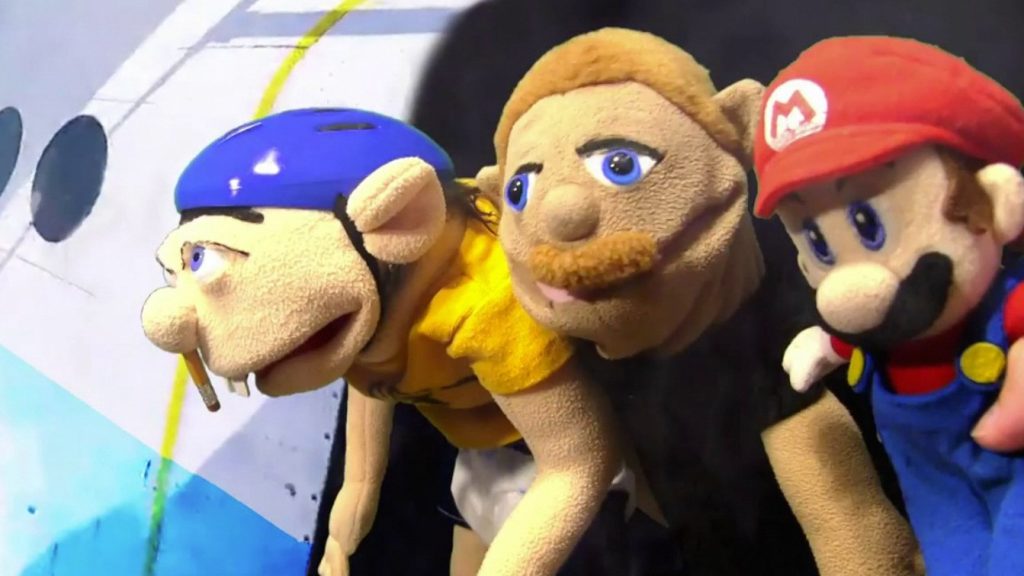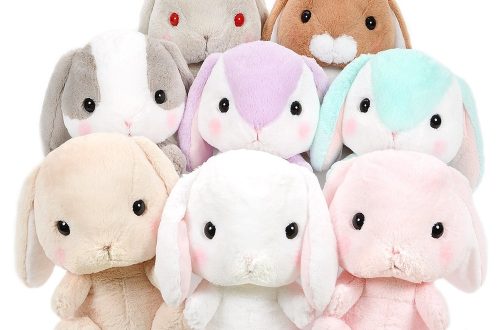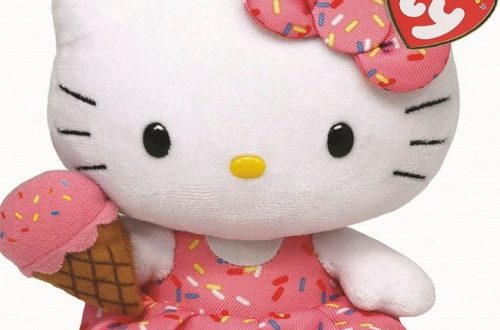Jeffy, the foul-mouthed, potty-humored puppet created by ventriloquist Jeff Dunham, has become a cultural phenomenon. He’s a source of both amusement and controversy, sparking laughter and outrage in equal measure. This article delves into the enigma of Jeffy, exploring the reasons behind his comedic appeal and the chaos he often unleashes.

Part 1: The Comedy of Jeffy
Pushing Boundaries:
Jeffy thrives on breaking the mold of traditional ventriloquist acts. He is not the typical well-behaved, polite puppet, but rather a rude, obnoxious five-year-old prone to outbursts and outrageous behavior. This subversion of expectations creates a comedic dissonance, as it goes against the stereotype associated with ventriloquist acts. By deviating from the conventional, Jeffy’s character introduces a refreshing and unexpected dynamic to the performance. This contrast in behavior between the ventriloquist and his puppet creates inherently funny situations, as the audience is caught off guard by Jeffy’s unpredictable and unconventional behavior. His antics challenge the traditional portrayal of ventriloquist puppets, injecting a rebellious and eccentric energy into the act. This unexpected and humorous twist adds depth to the performance, capturing the audience’s attention and making Jeffy a memorable and unconventional character within the realm of ventriloquism.
Unfiltered Honesty:
What truly sets Jeffy puppet apart is his complete lack of filter. He doesn’t hold back and says what others wouldn’t dare, often with a surprising amount of social commentary hidden beneath his crass exterior. His blunt honesty can be shocking, as he fearlessly speaks his mind without sugar-coating his opinions. However, it also resonates with viewers who appreciate his uncensored approach. Jeffy’s unfiltered nature allows him to vocalize thoughts and observations that many people may feel but are afraid to express openly. This fearless honesty enables him to address societal issues and norms in a direct and unapologetic manner. It provides a unique perspective that prompts viewers to reflect on their own inhibitions and conformity to social expectations. By embodying this unapologetically outspoken persona, Jeffy becomes a thought-provoking character.

Part 2: The Appeal of Jeffy
Laughter Through Discomfort:
Humor often thrives on pushing boundaries and making the audience feel slightly uncomfortable. Jeffy’s constant barrage of insults, bathroom jokes, and social awkwardness creates a tension that releases in laughter. This cathartic release is part of what makes him so appealing to some viewers.
Nostalgia and Regression:
Jeffy embodies the mischievous, rebellious spirit of childhood, capturing the essence of youthful exuberance and spontaneity. His antics serve as a whimsical reminder of a time when individuals could be unapologetically silly. They could be carefree and say whatever popped into their heads without facing criticism or judgment. This relatable portrayal of unfiltered childhood behavior strikes a chord with viewers. It evokes a sense of nostalgia for the freedom and innocence of youth. The character’s carefree and uninhibited nature resonates with adults. They may be seeking a temporary break from the seriousness and responsibilities of everyday life. Jeffy’s portrayal not only provides comedic entertainment but also offers a form of escapism. It allows audiences to reconnect with the lighthearted, carefree aspects of their childhoods and momentarily escape the complexities of adulthood.

Part 3: The Chaos Unleashed
Fueling Outrage:
Jeffy’s offensive nature inevitably sparks controversy, as his constant use of bad language and bodily humor can be off-putting to some viewers. Many find his behavior vulgar and disrespectful, leading to criticisms of his presence in certain media. Parents, in particular, often express concerns about his influence on children, fearing that his inappropriate conduct might be emulated. The portrayal of Jeffy’s character raises questions about the appropriateness of his behavior and its impact on impressionable audiences. Some viewers may appreciate his edginess and irreverent style, while others denounce it as unsuitable for certain audiences, especially younger viewers. This dichotomy in audience perception contributes to ongoing debates about controversial characters like Jeffy in the entertainment landscape. It prompts critical reflection on the boundaries of humor and the responsibility of content creators to consider the potential impact of their portrayals.
Divisive Humor:
Jeffy’s brand of humor is inherently divisive, catering to a specific audience that revels in the shock value and subversion of traditional comedy norms. However, his style and content that some find offensive has led to a perception that he symbolizes a declining society lacking in respect and decorum. For those who appreciate his humor, Jeffy’s unfiltered and irreverent approach resonates as a bold departure from conventional comedic tropes. Yet, for others, his crass humor and disruptive behavior are seen as emblematic of a coarsening cultural landscape. This dichotomy of perspectives reflects the inherent polarization surrounding his character, sparking ongoing debates about the role of controversial or irreverent comedy in modern entertainment.

Part 4: The Legacy of Jeffy
A Puppet’s Impact:
Whether you love him or hate him, Jeffy undeniably has a significant cultural impact. His presence has sparked meaningful conversations about the boundaries of humor, the impact of media on children, and the evolving nature of comedic entertainment. Despite being a polarizing figure, his popularity has brought attention to the changing landscape of comedy. Shock value and unfiltered honesty can be just as effective as traditional wit. The discussions surrounding Jeffy’s character have prompted critical reflections on the role of controversial or unconventional comedy in the contemporary entertainment industry. His ability to provoke strong reactions and initiate thought-provoking dialogues about the societal impact of media content and the evolving tastes of audiences signifies his enduring influence. Regardless of individual opinions, Jeffy’s presence serves as a cultural touchstone. It shines a light on the diverse perspectives and conversations that shape our understanding of humor and media in today’s society.
Evolving with the Times:
Jeffy, like any successful comedic act, has to adapt to stay relevant. As societal attitudes shift, Jeff Dunham may have to refine Jeffy’s humor to maintain his appeal. Whether Jeffy continues to be a source of laughter or fades into obscurity, one thing is certain – he’s a reminder that sometimes, the most controversial characters can be the most unforgettable.
Jeffy remains a complex phenomenon. He’s a puppet who provokes strong reactions, both good and bad. Understanding the reasons behind his appeal and the controversy he generates offers a glimpse into the ever-evolving landscape of comedy and the power of a well-crafted character, even if that character is made of felt and foam.



